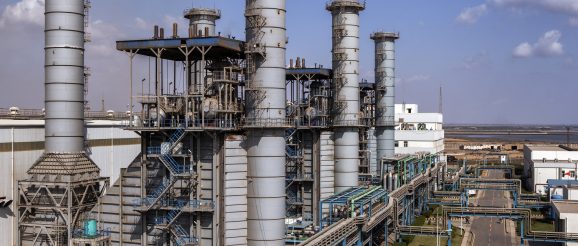BloombergNEF Launches Its 2022 Net-Zero Technology Innovation Challenges | BloombergNEF

Fighting climate change requires technology innovation across all industries and geographies. While some climate technologies are already scaled, some important innovation gaps still remain that must be addressed. Identifying unique innovations, with the potential for significant impact, and a high likelihood of adoption, is the job of BloombergNEF’s annual Pioneers program. The 2022 program launches on October 4, 2021, receiving applications here.
For more than a decade, the BNEF Pioneers program has identified 10 or more game-changing technologies or innovations annually – each with the potential to accelerate global decarbonization and halt climate change. Pioneers can be innovators serving the energy, transport, materials, manufacturing, consumer and agriculture sectors, or providers of solutions and technologies that help increase understanding of the climate, scale carbon capture, utilization and storage, and promote climate adaption.
2022 BNEF Pioneers program
For 2022, the program has chosen three climate challenges to focus on and will award the Pioneers prize to applicants whose innovations have the potential to solve the following:
1. Providing round-the-clock zero-emissions power
Solar, wind and existing storage technologies can provide around three-quarters of our electricity needs in future, but to reach net zero requires other technologies to close the remaining gap. Eliminating the use of unabated fossil fuels, affordably, could require innovation in new and/or improved forms of net-zero baseload generation; technologies that can store renewable electricity for long periods of time; or technologies that can provide inertia, other forms of frequency and voltage regulation, and bolster system strength.
2. Scaling long-term carbon removal technologies
Meeting net-zero targets will first and foremost require rapid, deep emissions reductions, but it is becoming clear that carbon dioxide removal from the atmosphere will also be needed to avoid warming above 1.5 degrees. Calculations of how much removal is required vary dramatically, but BNEF’s Gray Climate Scenario requires 1.6 billion tons of carbon offsets by 2050, and Mark Carney has called for a $100 billion per year voluntary offset market. Current carbon offsetting projects rely on planting and protecting forests, but this can be hard to certify and is often only temporary removal. New innovations could include ways to improve existing nature-based carbon offsetting, or finding ways to scale regenerative farming and ocean fertilization. Innovations for new technologies that offer measurable, scalable and long-term removal – such as direct air capture – must also be explored.
3. Decarbonizing aviation
Aviation accounts for 2% of annual global CO2 emissions and airplane contrails contribute towards global warming. As air travel becomes more affordable for an increasing share of the world’s population demand for air miles is set to triple between 2019 and 2050. While there is some promise in electrifying short-haul flights, and some use cases of biofuels and hydrogen, none of these have scaled. New innovations could include advances in these technologies, as well as new engine and component design, flight efficiency and traffic control improvements.
BNEF will also select one or more wildcard winners, unrelated to the above challenge. These wildcard applicants can address any issue that helps the world decarbonize and we encourage submissions for all climate-tech solutions that lie outside the three challenges outlined above.
Previous Pioneer winners have raised over $14 billion in financing
BNEF has named 117 Pioneers in the 12-year history of the competition. As of early May 2021, the winners had disclosed over $12.6 billion in financing, raised from investors as wide-ranging as Kleiner Perkins, Google Ventures and the U.S. Air Force. Since then, winners Stem, REE and Proterra have raised over $1.5 billion via reverse mergers (acquired by SPACs), and Pivot Bio raised a $430 million Series D. Winners EVBox, Planet and Bright Machines will go public later this year, also through reverse mergers.
Previous winners have offered innovations for sustainable materials, biofuels, heating & cooling, clean power, electric transport and energy storage. The winners in 2021 were the most diverse group yet, ranging from carbon-dioxide absorbing seawall infrastructure (ECOncrete) to building nanosatellites for earth observation (Planet) to optimizing commercial shipping routes (Nautilus Labs).
The application process
Applications for the competition will open on October 4, 2021, here, with winners announced in early April 2022. Contact us at [email protected] for any questions about this year’s application process. We accept applications from early-stage companies; pilot projects and joint ventures: NGOs, laboratories and innovation communities.
